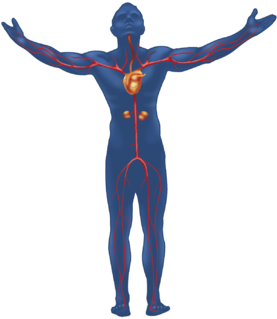Strong natural vitamin E - pharmaceutical-grade quality
- Strong preparation with vitamin E from natural sources
- Protects against oxidative stress
- Each capsule contains d-alpha-tocopherol in an amount equivalent to 350 mg (525 IU) of vitamin E
- Manufactured under Danish pharmaceutical control
- GMO-free
- Scientifically documented
| 1 capsule contains | % RDA* | ||
|---|---|---|---|
| Vitamin E (d-alpha-tocopherol) | 350 mg a-TE | 2,917% |
* RDA = Recommended Daily Allowance
Product Facts
Directions
1 capsule daily unless advised otherwise.
Do not exceed the recommended daily dosage.
Do not chew the capsule but swallow it whole, preferebly during/after a meal.
Dietary supplements should not replace a varied diet.
A healthy lifestyle and a varied diet are important for maintaining good health.
Ingredients
d-a-tocopherol (natural vitamin E), capsule shell: gelatin, bulking agent: soybean oil, humectant: glycerol.
Bio-E-Vitamin contains certified GMO-free, natural vitamin E
Storage
Dark, dry and at room temperature.
Keep out of reach of young children.
What is Bio-E-Vitamin?
Bio-E-Vitamin is a strong vitamin preparation wth pharmaceutical-grade vitamin E. It consists of clear, soft gelatin capsules with purified soybean oil, and natural d-alpha-tocopherol. Each capsule contains approx. 350 mg/525 IU of vitamin E. As with other fat-soluble vitamins, vitamin E should be ingested with a meal.
Pregnancy
Bio-E-Vitamin may be used by pregnant and lactating women.
What is vitamin E?
 Vitamin E is a natural, lipid-soluble vitamin of vegetable origin. Vitamin E comprises a group of lipid-soluble substances grouped as tocopherols and tocotrienols. Vitamin E is primarily found in foods that contain fat. The two most prevalent types of vitamin E are alpha- and beta-tocopherol. Alpha-tocopherol is considered to be the most active form. Vitamin pills typically contain either dl-alpha-tocopherol or d-alpha-tocopherol. The latter is the bio-identical form of the vitamin.
Vitamin E is a natural, lipid-soluble vitamin of vegetable origin. Vitamin E comprises a group of lipid-soluble substances grouped as tocopherols and tocotrienols. Vitamin E is primarily found in foods that contain fat. The two most prevalent types of vitamin E are alpha- and beta-tocopherol. Alpha-tocopherol is considered to be the most active form. Vitamin pills typically contain either dl-alpha-tocopherol or d-alpha-tocopherol. The latter is the bio-identical form of the vitamin.
Milligrams and international units
Vitamin E is measured in milligrams (mg) or international units (IU).
1 mg of d-alpha-tocopherol = 1.49 IU
Absorption and effects of vitamin E
Vitamin E is absorbed in the small intestine together with dietary fat. The absorption is incomplete, however. Ingestion of large quantities of vitamin E causes the absorption of the nutrient to decrease. People with reduced lipid (fat) absorption also have lower absorption of vitamin E in their small intestine.
Protects against oxidative damage
Vitamin E is carried around in the body in the same way as fat (bound to lipoproteins) and distributed to the majority of tissues. The physiological effect of vitamin E is thought to be related to its role as an antioxidant where the nutrient inhibits the oxidation of unsaturated fatty acids. Vitamin E also protects vitamin A against being degraded. The need for vitamin E is proportionally related to the intake of poly-unsaturated fatty acids.
Excretion of vitamin E
Vitamin E is most probably excreted with bile and, subsequently, with feces. Vitamin E may enter breast milk but only enters the placenta with great difficulty.

Natural vitamin E sources
Vitamin E is primarily found in vegetable foods. However, liver contains quite a lot of vitamin E. Other natural vitamin E sources include foods like:
- Fats
- Nuts
- Corn products
- Eggs
- Cheese
- Oily fish
- Milk
Deep-freezing causes the vitamin E content in food to lose its effect.
Caution required
Bio-E-Vitamin should not be used with conditions that resemble vitamin K deficiency. Also, the product shold not be taken in the case of peanut allergy, soy allergy, or allergy towards the active ingredient or one or several of the ingredients. Large doses of vitamin E may increase bleeding time and should therefore not be taken 2 weeks prior to or after surgery.
Variations in gelatin hardness
The hardness of our soft gelatin capsules can vary. The difference depends solely on the water content of the capsule shell. We dry all our soft capsules before packaging, which makes the capsules firmer and facilitates the packaging process itself. Over time, the capsules can absorb water from the air, and this will soften the capsule shell.
The variations in the hardness of the capsule have no effect on the product quality, but if a hard capsule is a problem, a solution may be to leave the capsule outside the blister sheet for a day, whereby the capsule can absorb a little water from the air. This is generally not something we recommend, as the product will no longer be protected as when it is in the blister sheet. Another method of quickly softening the gelatin capsule is to place it in lukewarm water for one minute. However, it should be seen as an emergency solution.
Official claims
The European Food Safety Authority (EFSA) has evaluated the evidence behind vitamin E and has acknowledged the following claims:
- Contributes to the protection of cells from oxidative stress

